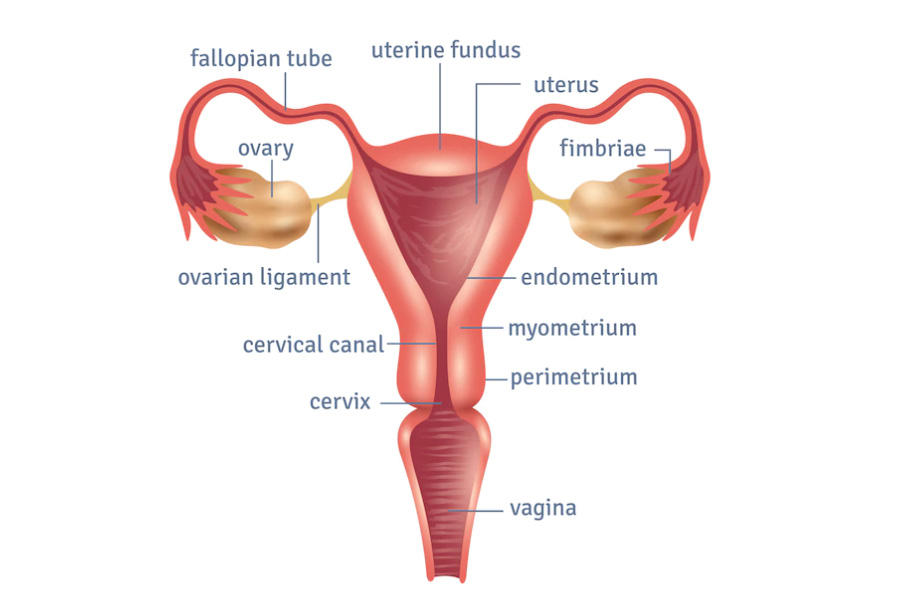
You’re on your way to understanding a fascinating medical test that may hold the key to unlocking important aspects of your reproductive health. Today, however, we’re delving into the fascinating realm of the Hysterosalpingography (HSG) test, an investigation that will hopefully shed light on a subject that has a significant impact on so many people’s lives.
The HSG test, short for Hysterosalpingography, may sound like a mouthful, but it plays an important role in reproductive health. In this blog, we’re going to break down what this test is, why it’s done, and what you can expect from it. So, get ready to embark on a journey of knowledge about a medical test that can affect your life.
To make sure you get the most out of this exploration, let’s quickly outline the key points we’ll cover. We’ll begin by explaining the HSG test’s purpose and need. Then, we’ll discuss the different types of HSG Hysterosalpingography tests and when they’re usually recommended. So, fasten your seatbelt, and let’s begin!
what is the test?
So, what exactly is this HSG test? Well, it’s a medical procedure designed to provide valuable insight into your reproductive health. Simply put, it’s like a window that allows doctors to peek into your reproductive system, and we’ll explain why this peek is so important. But before we get into the nitty-gritty of testing, let’s take a step back in time and explore how it all came about. The historical context and evolution of the HSG Hysterosalpingography test is not only interesting but also helps us to understand its significance in modern medicine.
Types of HSG Tests
You may be surprised to know that there is not just one HSG Hysterosalpingography test but several variations. Each of these has a specific purpose and we will walk you through what they are and when they are generally recommended It’s like having different lenses to look at different aspects of your reproductive health. Now that we’ve piqued your curiosity about the different types of HSG tests, let’s learn when and why your doctor might recommend a particular type. Understanding this will empower you to have a more informed discussion with your healthcare provider.
Why is this test done?
Medical conditions and circumstances requiring an HSG
Infertility: HSG is usually performed to assess the patency of the fallopian tubes, as blockage can cause infertility. Recurrent Miscarriages: It helps to detect uterine abnormalities or abnormalities in the shape of the uterine cavity. Pelvic pain: In the case of unexplained pelvic pain, HSG can reveal possible causes such as uterine fibroids or adhesions. Postpartum Complications: After delivery, HSG can detect complications such as placental tissue.
Ectopic Pregnancy: To detect and identify ectopic pregnancy occurring outside the uterus.
B. Importance of early detection and prevention
Fertility optimization: Early detection of fallopian tube blockage or uterine abnormalities allows for timely intervention, increasing the likelihood of successful conception.
Prevention of complications: Early detection of problems such as retained placental tissue or uterine anomalies can prevent complications and promote safe pregnancies.
Treatment planning: It helps to plan appropriate treatment such as surgery or fertility treatment based on test results
Peace of mind: For those trying to conceive, knowing their reproductive health status provides peace of mind and an opportunity to make informed decisions about family planning.
procedure
A diagnostic tool for a number of reproductive disorders is the HSG test. This can help detect problems such as blocked fallopian tubes or uterine abnormalities. Think of it as a way to uncover potential roadblocks that could be hindering your fertility journey.
B. How Tested / How It Works
The HSG procedure may seem mysterious, but we’re here to demystify it for you. We’ll walk you through the steps involved in the exam, so you know exactly what to expect. Knowledge is power, and understanding how it works can alleviate any fears.
An important component of the HSG test is the contrast component. We will explain how this substance plays an important role in forming the picture of your reproductive system. Seeing everything clearly is like turning on a light in a dark room.
C. What happens before the test?
Preparation is important when it comes to medical procedures. We’ll cover everything you need to know about preparing for the HSG exam. We’ve got you covered on everything from fasting needs to medication concerns. You’ll be well prepared.
D. What happens during the test?
Ever wondered what the testing room looks like or what you’ll feel during an HSG test? We will paint a clear picture for you. Understanding the test environment and what you will do can help reduce anxiety and uncertainty.
What will the test look like?
During the HSG test, it is normal to experience some sensations that may protect you. We will describe these sensations, which may include cramping and discomfort, in detail. Knowing what to expect can help you stay calm and composed during the process.B. Pain and discomfort during the procedure
We understand that managing pain and discomfort is a top concern for anyone undergoing a medical exam. We will provide practical tips and tricks to deal with any discomfort you may experience during the HSG test. Your comfort is important, and we’re here to help you every step of the way.
How to Prepare for Exams: Points to Keep in Mind
A. Pre-examination instructions and dietary considerations
Proper preparation is essential for a successful HSG test. We will guide you through the pre-test, including any dietary considerations you should keep in mind. Being well-prepared guarantees a successful test.
B. Choice of clothing and personal hygiene
What you wear and how you prepare yourself can affect your comfort during the HSG test. We’ll offer insight into appropriate clothing choices and personal hygiene practices that can make the process more comfortable and stress-free.
HSG is important for assessing reproductive health and early detection of problems.
Early detection can significantly affect fertility and reproductive outcomes.